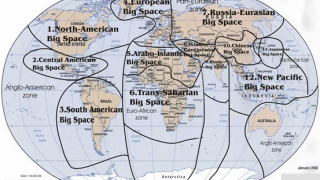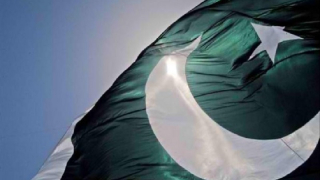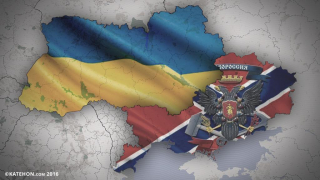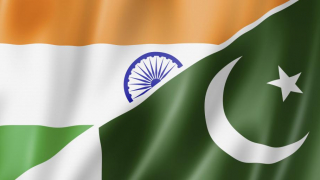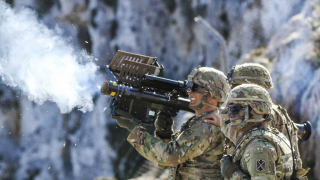The twilight of globalism and multipolarism
The year 2023 saw many important events that have influenced the course of world history or will do so in the near future. The year passed under the sign of persistent but ultimately unsuccessful attempts by the collective West to turn against Russia the neutral countries and other states that did not want to follow Washington's hegemony and preferred either to distance themselves from the ongoing confrontation, or to move closer to Russia, or to pragmatically exploit the situation of further decline toward multipolarity by building their own power. It is indicative that not only Russia's proven friends and partners, as well as states in the multipolar club, such as China, Iran, Cuba, Venezuela, Algeria, and India, but also those traditionally associated with the West, such as Pakistan, have not given up further cooperation with Russia and have even begun to show interest in its further expansion. Relations between Russia and China have progressed significantly (Xi Jinping has visited our country), and those between Russia and the Democratic People's Republic of Korea have reached a new level (Kim Jong-un has also visited Russia).
The EU's new sanctions packages and suicidal policies have led to the destruction of many European economies and changes in supply chains. Although this was initially exploited by the U.S., through third countries Russia was able to obtain needed goods from Europe, causing Brussels' frustration at the ineffectiveness of the sanctions imposed. Meanwhile, Russia intensified its retaliation against hostile countries.
The war in Ukraine has been positional and characterized by a battle of attrition. The NATO bloc, together with Ukraine, showed its weakness. The West failed to somehow turn the conflict in its favor, and by the end of the year panicky statements and comments began to appear from Western experts that the Western coalition had achieved nothing and would achieve nothing. At the same time, the Russian economy remained stable and the armed forces continued to carry out their tasks.
The Nagorno-Karabakh Republic (never recognized by anyone, not even Armenia, during its entire existence) ceased to exist after Azerbaijan's successful military campaign in September. This has led to a difficult situation in Armenia, where Soros agent Nikol Pashinyan is trying to reinforce Russophobic sentiments. Since Armenia is a member of the EAEU and CSTO, this creates political tensions that Western countries seek to exploit.
On October 7, a new war began between the Palestinians and Israel. Hamas' action was the trigger for the new conflict, even though serious signs of the ongoing war had been felt for months. By the end of December, the number of Palestinians killed exceeded 20,000, and Israel did not stop bombing residential neighborhoods and hospitals, carrying out a consistent genocide of the Palestinian people. The United States sided with Israel, provoking a negative reaction from Arab and Muslim countries. Washington will have to reap the consequences of this reaction for years to come. The Abrahamic agreement sought by Donald Trump, which prompted Morocco, Bahrain and the United Arab Emirates to establish diplomatic relations with Israel, has failed.
Houthi activity in Yemen, as well as Iranian proxies in the region (especially in Syria and Iraq), has led to a virtual blockade of Red Sea shipping. The presence of the U.S. military in the region makes the situation explosive. The Israeli-Palestinian conflict, together with the situation in Syria, Lebanon, and Iraq, could plunge the entire region into a major crisis.
Among the summits that have taken place have been the traditional conferences of the Atlanticist camp of the Group of Seven, the Davos Forum (which turned out to be a failure, partly because, despite lofty declarations, it failed to harm Russia significantly), the Bilderberg Club gathering, and the NATO summit (Finland joined the alliance this year and Sweden's admission may take place in the near future).
Among the neutral ones, there was the G20 summit in New Delhi (thanks to India's position, the Russian presence was noticed and emphasized), the United Nations climate meeting in the United Arab Emirates, the ASEAN summit in Jakarta and the APEC summit in San Francisco, the Arab League meeting in Jeddah in May, and the extraordinary joint summit of ASEAN and the Organization of Islamic Cooperation in Riyadh in November.
Russia hosted the Russia-Africa Summit in July, the Russian-Islamic World Forum in Kazan, the Eastern Economic Forum in Vladivostok, and the International Economic Forum in St. Petersburg. A summit of CIS leaders and a meeting of the Supreme Eurasian Economic Council will be held in St. Petersburg in late December.
Important was the summit of the BRICS club, where its expansion was approved. As of January 1, 2024, BRICS+ will expand to include Egypt, Iran, the United Arab Emirates, Saudi Arabia and Ethiopia. Argentina has so far taken a hesitant stance. However, with a number of other countries in the queue to apply, we can say that the trend toward multipolarity has been vindicated and the BRICS format has proven to be highly successful. The countries have retained their cultural and traditional identities while interacting intensively in various areas.
Developments in Africa are also pleasing. The withdrawal of the French and German armed forces from Mali, the creation of the Sahel Alliance between Burkina Faso, Niger and Mali in September, al-Sisi's victory in the Egyptian elections, anti-Western sentiment and other decolonization processes testify to the strengthening of sovereign thinking and interest in the philosophy of multipolarity.
A similar situation can be seen in Latin America. Despite the victory of a U.S. supporter in the presidential elections in Argentina and the stay of course in Ecuador, the return of Lula da Silva to Brazil, the stay of course in Bolivia, Cuba, and Nicaragua, and the diplomatic victories of Venezuela (partial lifting of sanctions by the U.S. and EU, the release of diplomat Alex Saab, and, of course, the referendum on Esequibo) and Mexico's pragmatic stance (with moderate criticism of the United States) (there is a possibility that continuity will be maintained after the 2024 elections) indicate the strengthening of the multipolar vector.
In the United States and Britain, however, there is a clear political crisis underway. Divisions and contradictions among the old political elites are growing. Migration policy has reinforced the critical attitude of the conservative part of the electorate toward the government. In Britain, the number of bankrupt companies and those who have not paid their taxes has risen to a record level. In the United States, the situation is no better. Although Joe Biden is trying to revive the country's economy with his decrees, it remains in a deplorable state. Moreover, political scandals and the president's incapacity (which has become a cause for ridicule) on the eve of the 2024 elections indicate a serious crisis of statehood in this country.
Overall, the year was difficult and eventful, but Russia made the most of foreign policy opportunities to implement its strategy. Theoretically it could have done more, but objective factors must also be taken into account, including the fact that the Russian Foreign Ministry and pool of experts are still quite pro-Western. Organizations like RIAC, while trying to show loyalty to President Putin and the SMO, can clearly be classified as sixth column, so the international community will still need to be purified and re-educated in the spirit of patriotism and sovereignty.







